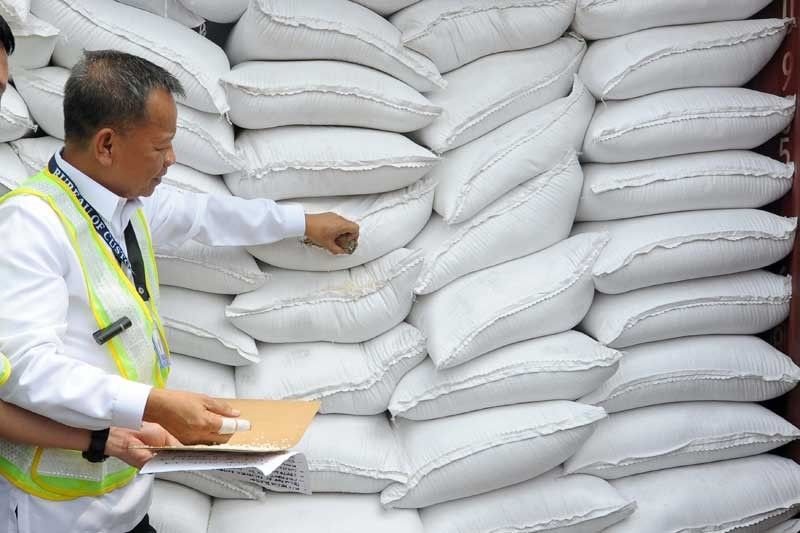Customs to beef up capability vs rice smuggling

MANILA, Philippines — Concerned that there would be more attempts to smuggle rice into the country, the Bureau of Customs (BOC) is acquiring around 20 watercraft that would be used for patrol to prevent crimes committed at sea.
BOC Commissioner Isidro Lapeña yesterday said even before the Naval Forces Western Mindanao seized a foreign cargo vessel carrying 1,359 metric tons of smuggled rice, they had already been preparing to intensify their anti-smuggling campaign at sea.
Lapeña admitted that rice smuggling “is one thing we are concerned with” because of the reported shortage of government-subsidized rice.
Aside from rice, there have been reports of oil and illegal drugs being smuggled in the high seas.
This prompted the BOC to include in its budget the purchase of several watercraft to intensify their efforts against smuggling, since one of the marching orders of President Duterte to Lapeña when he assumed leadership of the bureau last August was to stop smuggling and corruption in the agency.
“We are now in the process of procuring three units of 74-footer watercraft that would be initially operated by the Philippine Coast Guard (PCG) while training our people so they would become experts in operating the seacraft. There would also be around 10 to 20 units of speedboats that are around 40-foot or 45-foot long. All these vessels are brand new and are expected to be delivered by the middle of the year,” said Lapeña.
They are also planning on procuring a helicopter that they intend to include in their proposed budget next year.
The BOC chief also has a standing directive to all district officials and personnel to be on the lookout for possible attempts to illegally bring in rice and other products into the country.
Manila International Container Port district collector Maritess Martin said they have many parameters on how to detect if a rice shipment was illegal.
“We base it on constant profiling and we do historical (checking) of the consignee and shippers and assessment of the importation. There are many parameters being used to detect smuggling but we cannot divulge them,” Martin said.
She added that usually the smuggled rice comes from China and Vietnam. There are instances when the smugglers would reroute the vessel to make it appear that the shipment came from a different country before heading to the Philippines, she said.
As this developed, senators asked yesterday the government to immediately conduct a thorough investigation into the attempted smuggling of rice worth P67.9 million off Zamboanga Sibugay recently.
Sen. Joseph Victor Ejercito asked the government to strictly implement Republic Act 10845 or the Anti-Agricultural Smuggling Act of 2016, which he principally authored.
He said the law was meant “to protect our farmers by making smuggling a non-bailable offense and an act of economic sabotage.”
Liberal Party (LP) senators also want the authorities to get to the bottom of the incident.
“These smugglers who amass wealth while our countrymen remain hungry should be prosecuted,” Sen. Paolo Benigno Aquino IV said.
“The authorities must find out who are behind rice smuggling. It’s possible that the syndicates behind this are also the ones bringing in drugs into the country,” he said. – Paolo Romero
- Latest
- Trending






























